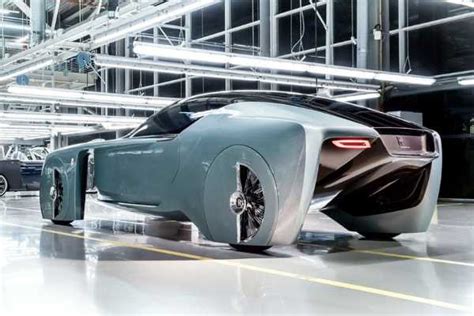In an era where mindful consumption is gaining traction across various aspects of life, the automotive world is no exception. This article delves into the principles of mindful consumption specifically within the context of vehicle choices, highlighting the importance of aligning automotive decisions with sustainability and purposeful living. From understanding the environmental impact of traditional vehicles to exploring eco-friendly alternatives and innovative technologies, we will uncover how thoughtful choices in the automotive realm can contribute to a more mindful and sustainable lifestyle. Discover how you can make informed decisions that not only benefit you financially but also foster a deeper connection with the environment and your values.
Join lealhotel.com as we delve deeper into this topic.
1. Understanding Mindful Consumption: Definition and principles of mindful consumption in the context of automotive choices.
Mindful consumption involves making deliberate and thoughtful choices that align with our values and contribute to a more sustainable and purposeful lifestyle. In the context of automotive choices, it means considering not only the immediate benefits of a vehicle but also its long-term impact on the environment, society, and personal well-being. This approach encourages us to look beyond superficial features and focus on the broader implications of our decisions.
Principles of mindful consumption in automotive choices include assessing the environmental footprint of a vehicle, such as its fuel efficiency and emissions. It also involves evaluating the ethical practices of manufacturers, including their commitment to sustainability and responsible resource use. By prioritizing vehicles that align with these principles, we contribute to reducing our ecological impact and promoting a more thoughtful approach to driving and vehicle ownership. Ultimately, mindful consumption fosters a deeper connection with our choices and their eff

2. Environmental Impact: Analysis of the automotive industry’s environmental footprint and the importance of sustainability.
The automotive industry has a significant environmental footprint, impacting air quality, natural resources, and climate change. Traditional vehicles, particularly those powered by gasoline and diesel, contribute heavily to greenhouse gas emissions, which are a major driver of global warming. These vehicles release pollutants such as carbon dioxide, nitrogen oxides, and particulate matter, exacerbating urban air pollution and affecting public health.
Moreover, the production and disposal of vehicles involve resource-intensive processes, including the extraction of raw materials, manufacturing, and end-of-life disposal. These stages can lead to habitat destruction, resource depletion, and increased waste.
Emphasizing sustainability in automotive choices is crucial for mitigating these impacts. Opting for vehicles with lower emissions, such as electric or hybrid models, reduces the carbon footprint and dependence on fossil fuels. Additionally, supporting manufacturers that implement sustainable practices and use eco-friendly materials can further contribute to reducing environmental harm. By making informed decisions and prioritizing sustainability, individuals can play a significant role in lessening the automotive industry’s ecological impact and promoting a healthier planet.

3. Choosing Sustainable Vehicles: Criteria for selecting eco-friendly vehicles, including electric and hybrid options.
Choosing sustainable vehicles involves evaluating several key criteria to ensure that your automotive choices align with eco-friendly principles. First and foremost, consider the vehicle’s emissions profile. Electric vehicles (EVs) and hybrid models typically produce fewer or zero tailpipe emissions compared to traditional gasoline or diesel-powered vehicles. This reduction in emissions is crucial for minimizing air pollution and reducing your carbon footprint.
Another important factor is energy efficiency. Look for vehicles with high fuel economy ratings or those that utilize energy-efficient technologies, such as regenerative braking in hybrids or advanced battery systems in EVs. These features help reduce overall energy consumption and operational costs.
Assessing the vehicle’s environmental impact throughout its lifecycle is also essential. This includes evaluating the sustainability of the materials used in the vehicle’s production and its recyclability at the end of its life. Many manufacturers now offer vehicles with eco-friendly materials and take-back programs for recycling components.
Finally, consider the availability of charging infrastructure if you’re looking at electric options. A robust network of charging stations can enhance the convenience and feasibility of owning an EV. By focusing on these criteria, you can make more informed decisions that support a sustainable automotive future and align with mindful consumption practices.

4. Economic Considerations: Evaluating the long-term financial benefits of sustainable automotive choices.
Evaluating the long-term financial benefits of sustainable automotive choices involves considering both immediate and future cost implications. While electric vehicles (EVs) and hybrids often come with a higher upfront price, they can lead to significant savings over time. One major advantage is lower fuel costs; EVs and hybrids generally require less expensive electricity or fuel compared to gasoline or diesel, resulting in reduced ongoing expenses.
Maintenance costs are another critical factor. EVs, for instance, have fewer moving parts and don’t require oil changes, which can lead to lower maintenance and repair costs. Additionally, many manufacturers offer warranties and incentives for sustainable vehicles, further offsetting initial expenses.
Resale value is also an important consideration. As demand for eco-friendly vehicles grows, they may retain higher resale values compared to traditional vehicles. Furthermore, some governments offer tax incentives and rebates for purchasing sustainable vehicles, which can help reduce the overall cost of acquisition.
In summary, while the initial investment in sustainable vehicles may be higher, the potential savings in fuel, maintenance, and tax incentives can offer substantial long-term financial benefits, making them a worthwhile considerati

5. Reducing Carbon Footprint: Practical tips for minimizing the carbon footprint of vehicle ownership and use.
Reducing the carbon footprint of vehicle ownership and use involves several practical strategies. First, regular vehicle maintenance is crucial for optimizing fuel efficiency and reducing emissions. Ensure your vehicle’s tires are properly inflated, the engine is tuned, and the air filters are clean, as these factors can significantly impact fuel consumption and emissions.
Adopting efficient driving practices can also lower your carbon footprint. Avoid rapid acceleration and hard braking, as these driving habits can decrease fuel efficiency. Instead, practice smooth acceleration and deceleration, and use cruise control on highways to maintain a steady speed.
Carpooling or using public transportation whenever possible can reduce the number of trips you make in your vehicle, thereby lowering overall emissions. For short trips, consider walking or biking as alternatives to driving.
Additionally, plan and combine trips to reduce the total distance traveled. Using GPS and traffic apps to avoid congested routes can also help minimize idling time and improve fuel efficiency.
Finally, consider offsetting your vehicle’s carbon emissions by supporting carbon offset programs or investing in sustainable projects. By implementing these tips, you can effectively reduce your vehicle’s environmental impact and contribute to a more sustainable lifestyle.

6. Mindful Driving Practices: Techniques for driving more efficiently and reducing environmental impact.
Mindful driving practices play a crucial role in enhancing vehicle efficiency and reducing environmental impact. Start by maintaining a steady speed and avoiding sudden acceleration or braking, which can waste fuel and increase emissions. Use cruise control on highways to help maintain a consistent speed and improve fuel efficiency.
Plan your trips to minimize unnecessary driving. Combining errands and using GPS to find the quickest routes can reduce overall driving time and fuel consumption. Avoid excessive idling; turning off your engine when parked for extended periods can save fuel.
Incorporate smooth driving techniques, such as gentle acceleration and braking, to enhance fuel efficiency. Regularly check tire pressure and keep them properly inflated to ensure optimal performance.
Finally, utilize energy-saving features in your vehicle, like eco-driving modes or regenerative braking in hybrids. By adopting these mindful driving practices, you can significantly lower your vehicle’s environmental impact and drive more sustainably.

7. Ethical Manufacturing: Exploring brands and manufacturers committed to ethical and sustainable practices.
Ethical manufacturing in the automotive industry is increasingly becoming a key consideration for mindful consumers. Brands and manufacturers committed to sustainability and ethical practices prioritize reducing environmental impact and ensuring responsible production processes. When evaluating such companies, consider their efforts in several areas.
Firstly, look for manufacturers that employ sustainable sourcing of materials. This includes using recycled or eco-friendly materials and ensuring that raw materials are sourced responsibly, with minimal environmental disruption.
Secondly, assess the company’s approach to reducing carbon emissions in their production processes. Leading manufacturers often invest in energy-efficient technologies and renewable energy sources for their facilities, aiming to minimize their overall carbon footprint.
Another critical factor is the commitment to ethical labor practices. Companies dedicated to ethical manufacturing ensure fair wages, safe working conditions, and respect for workers’ rights throughout their supply chain.
Finally, some brands go beyond their own operations by supporting community initiatives and investing in sustainable development projects. By supporting manufacturers that adhere to these ethical and sustainable practices, you contribute to a more responsible and environmentally-conscious automotive industry.

8. Maintaining Vehicles Mindfully: Tips for extending vehicle life and reducing waste through mindful maintenance.
Maintaining vehicles mindfully involves adopting practices that extend their lifespan and reduce waste, ultimately contributing to a more sustainable automotive experience. Regular maintenance is essential for keeping your vehicle in optimal condition. Follow the manufacturer’s recommended service intervals for oil changes, filter replacements, and fluid checks. Timely maintenance helps prevent major issues, reducing the need for more extensive repairs or premature replacement.
Proper tire care is also crucial. Regularly check tire pressure and ensure they are properly inflated to improve fuel efficiency and extend tire life. Rotate your tires according to the manufacturer’s recommendations to promote even wear and maximize their longevity.
Address minor repairs promptly to avoid more significant problems later. Ignoring small issues can lead to more extensive damage and increased waste when parts need replacement.
When it comes to disposing of old parts and fluids, opt for recycling programs or proper disposal methods. Many auto shops offer recycling services for used oil, batteries, and other components.
Additionally, consider vehicle upgrades or modifications that enhance efficiency and performance, such as fuel-efficient tires or engine tuning. These upgrades can improve fuel economy and reduce environmental impact over time.
By following these mindful maintenance practices, you not only extend the life of your vehicle but also contribute to reducing waste and promoting a more sustainable automotive lifestyle.

9. Innovative Automotive Technologies: Overview of emerging technologies that support sustainability in the automotive industry.
Innovative automotive technologies are playing a pivotal role in advancing sustainability within the industry. One notable development is the progress in electric vehicle (EV) technology. Modern EVs feature advanced battery systems with greater energy density and longer ranges, reducing reliance on fossil fuels and minimizing emissions.
Hybrid technologies have also evolved, incorporating more efficient powertrains and improved regenerative braking systems that capture and reuse energy, enhancing fuel economy and reducing environmental impact.
Additionally, advancements in hydrogen fuel cell technology offer a promising alternative to traditional combustion engines. Hydrogen fuel cells produce electricity through a chemical reaction, emitting only water vapor and contributing to a cleaner driving experience.
Emerging technologies in vehicle-to-grid (V2G) systems allow EVs to return stored energy to the grid, supporting renewable energy integration and grid stability.
Lastly, smart mobility solutions, including autonomous driving and car-sharing platforms, are reducing the number of vehicles on the road, optimizing driving patterns, and promoting shared, efficient transportation.
These innovations are transforming the automotive landscape, making vehicles more sustainable and supporting a transition towards a greener, more environmentally-conscious future.

10. Aligning Lifestyle with Vehicle Choices: How to integrate mindful automotive decisions into a purposeful and environmentally-conscious lifestyle.
Aligning your lifestyle with mindful automotive decisions involves integrating sustainability and purpose into your vehicle choices and daily habits. Start by selecting vehicles that reflect your values, such as electric or hybrid models, which reduce your carbon footprint and support eco-friendly practices.
Incorporate sustainable driving habits, such as planning trips to minimize travel and using fuel-efficient driving techniques. Combine these practices with broader lifestyle choices, such as supporting local businesses, using public transportation, or adopting a car-sharing model to reduce your overall reliance on personal vehicles.
Educate yourself about the ethical practices of automotive brands and choose manufacturers committed to sustainability and fair labor practices. Regularly maintain your vehicle to extend its life and reduce waste, and recycle or responsibly dispose of automotive parts.
By consciously integrating these mindful automotive decisions into your everyday life, you create a cohesive approach to living sustainably, enhancing both your personal well-being and environmental stewardship. This alignment ensures that your vehicle choices harmonize with your broader commitment to a purposeful and environmentally-conscious lifestyle.

Embracing mindful consumption in the automotive world empowers us to make thoughtful choices that benefit both ourselves and the environment. By understanding the principles of sustainability, evaluating eco-friendly vehicle options, and adopting efficient driving and maintenance practices, we can significantly reduce our carbon footprint. Supporting ethical manufacturing and innovative technologies further enhances our commitment to a greener future. Integrating these mindful practices into our lives ensures that our vehicle choices align with our broader goals of purposeful and responsible living.
lealhotel.com